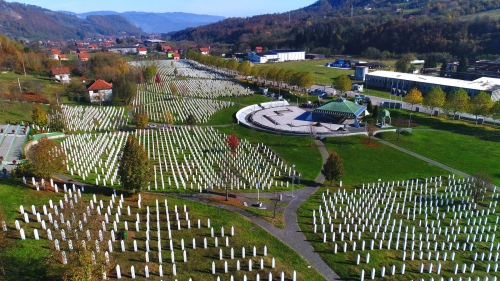Desperate Measures
 |
A Critical Battle for New Middle East
Using the July 12 capture of two Israeli soldiers - whose unit had apparently crossed the Israeli border into Lebanon - as a pretext, the Bush administration quickly sprung into action: imagining yet a new Middle East, where democracy and freedom reigns over militancy and oppression.
Since the neoconservative takeover of America's foreign policies, it has become apparent that the neocons do not operate with such impulsiveness. The plan for a new Middle East was introduced as early as 1992 by then less influential neoconservative elements. Those ideals were accentuated in 1996 by Richard Pearle and company, then advising Israel's Prime Minister at the time, Benjamin Netanyahu.
Exploiting the tragedy of the September 11 terrorist attacks to achieve what until then seemed unfeasible, Washington's neocons were hard at work: an invasion of Iraq, then Iran and Syria, which would naturally lead to the plunging of Lebanon into Israel's political sphere. Meanwhile, Israel would be entrusted with the ominous task of imposing whatever solution it finds suitable on defenseless Palestinians. But when it all seemed set for the advent of a new Middle East, Iraqis exhibited stiff resistance that bogged down America's military power and stretched its resources beyond expectations. The tens of billions of initial costs for war led to tens of millions more, with no end in sight.
It was all but a secret that the neoconservative dream of a new Middle East would once again be postponed. So the debate instead was tilted toward a much more urgent issue: how to escape Iraq with the least political damage possible. Yet, as some Americans wrangled with the quandary, desperate elements with and around the administration insisted that a new Middle East was still possible.
But that hope too seemed to slowly falter, as Iran insisted on its right to civilian nuclear technology with little or no enthusiasm by America's top military echelon to respond by exporting its military blunders east of the Iraq border.
Add to this eerie scenario the backfiring of their championed Middle East democracy project. The project was aimed at rearranging the region using the back door, with democracy being the new mantra. The advent of Hamas, Israel's most formidable foe in Palestine - as a result of one of the most transparent democratic elections ever held in the Middle East exposed the American democracy charade in phenomenal time and most ironic ways: the same Palestinians who were told to live up to Israel's high democratic standards were collectively punished, thereafter with the withholding of aid for doing just that. The democracy nuisance proved yet another embarrassing episode for the American administration - the supposed harbinger of democracy. As Secretary of State Condoleezza Rice barefacedly journeyed to world capitals to ensure the success of its government's sanctions on Palestinians, Israel unleashed a most violent campaign in the Occupied Territories, killing hundreds and arresting scores of Palestinian MPs and cabinet ministers.
Now that most of the doors have been shut before a new Middle East, there remained one unexplored possibility, the reordering of the original neoconservative plan, starting with Lebanon; but why Lebanon?
The original neoconservative doctrines - Paul Wolfowitz's doctrine of 1992, Pearle's foreign policy document of 1996, and those of the Project for a New American Century in later years - assured the collapse of the Lebanese front immediately after the elimination of the Syrian threat. Syria, it is believed, holds all the cards to Lebanese politics. Syria, however, is hardly perceived as a military threat the same way Iran is; thus political channels - at the UN and US Congress - were successfully used to pressure Syria to concede its Lebanese fortress to a pro-American Lebanese government. The subsequent events were anything but consistent with Israel's designs: Hizbollah was not disarmed to pave the way for the triumphant return of Israel to extend its political outreach as a regional power to its neighbor to the north, and to further push an increasingly isolated Syria into a corner, who would eventually deport anti-Israeli occupation factions based in Damascus.
Desperate times call for desperate measures cannot be any truer than in Israel's war against Lebanon. Media reports suggest that Israeli war plans against Lebanon were concocted years ago. UN reports indicate that Israeli forces have crossed the border into Lebanon on numerous occasions in the past, since the Israeli withdrawal from most Lebanese territories in July 2000, which mostly went unchallenged by the Lebanese resistance. July 12 was the exception. Why Hizbollah chose to respond to the Israeli provocation at such a scale on that specific date remains unclear. Did its leadership believe that capturing Israeli soldiers would strengthen their position when the predicted Israeli war was unleashed?
The fact of the matter is that the war on Lebanon was premeditated, with the hope that an easy war would bring an end to the resistance, coerce the country into an unwanted peace settlement, deliver a blow to Iran and Syria's regional ambitions, but most importantly downgrade Iran's regional import, perhaps as a stepping stone toward the long envisioned regime change.
The defeat of Hizbollah would've indeed breathed life and enabled the full return of the original neoconservative plans to the Middle East. It was no wonder that Secretary Rice took the podium and giddily declared the need for a New Middle East almost immediately after Israel began pounding Lebanon's civilian infrastructure. Such a Middle East would indeed require time and patience and anything but an 'immediate ceasefire'.
The war on Lebanon indeed is generating a new Middle East, but hardly the one the US and Israel have long fought for. Arabs, and for the first time in their recent history unreservedly speak of a real military victory. Of course, neither the US nor Israel are prepared to accept such an outcome. Without a doubt, a decisive battle for a new Middle East is going on in Lebanon, the question is who will define it and at what cost?
Ramzy Baroud is a US author and journalist, currently based in London. His recent book, "The Second Palestinian Intifada: A Chronicle of a People's Struggle" (Pluto Press, London), is now available at Amazon.com. He is also the Editor-in-Chief of the Palestine Chronicle
Topics: Conflicts And War, Foreign Policy, Government And Politics, Iran, Lebanon, Occupation, Syria, United States Of America
Views: 2999
Related Suggestions
democracy as a tool to take over the Middle East. It is plainly
evident that democracy is not the goal, otherwise they would
have accepted the the democratically elected governments of
Palistine and Lebanon. United States had previously praised
Lebanon for being a democratic country. So what's the problem?
The problem is they want these countries to be an exact copy of
the democracy we supposedly have in this country. Meaning
forget about your religion and your culture and adopt ours or
else! If you don't believe me go research American history and
see what this government did to the American Indians and
Blacks. I say clean up our own back yard before going and trying
to relandscape someone else. Wa Salaam Zahra Arshadi
to war with Lebanon or Hezbullah. US was looking into Iran & Syria. IS US desparate for Israeli
to gain the support overall.

















